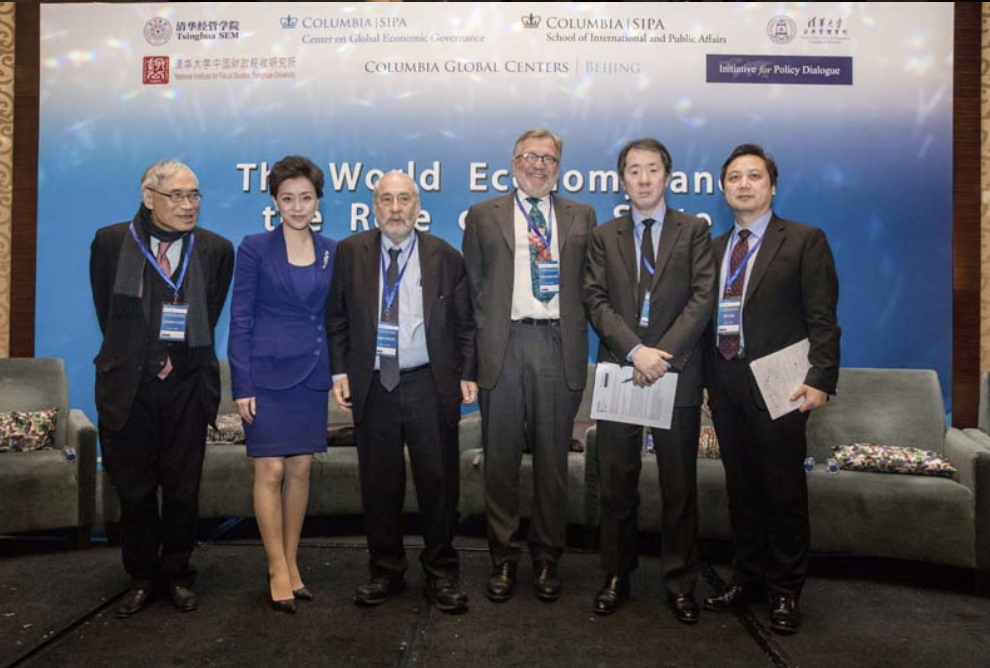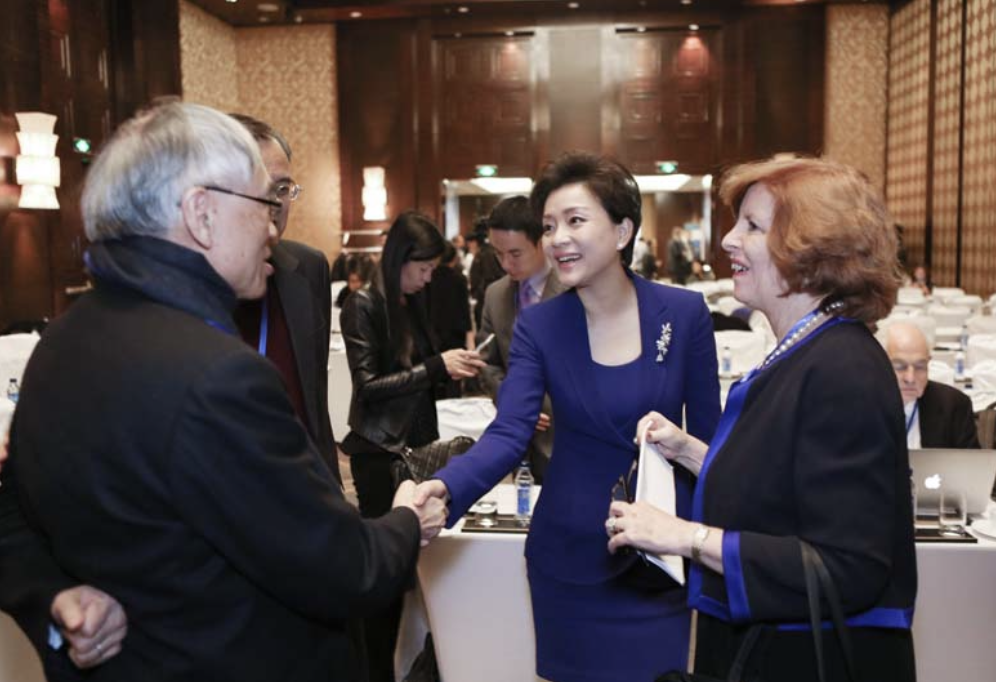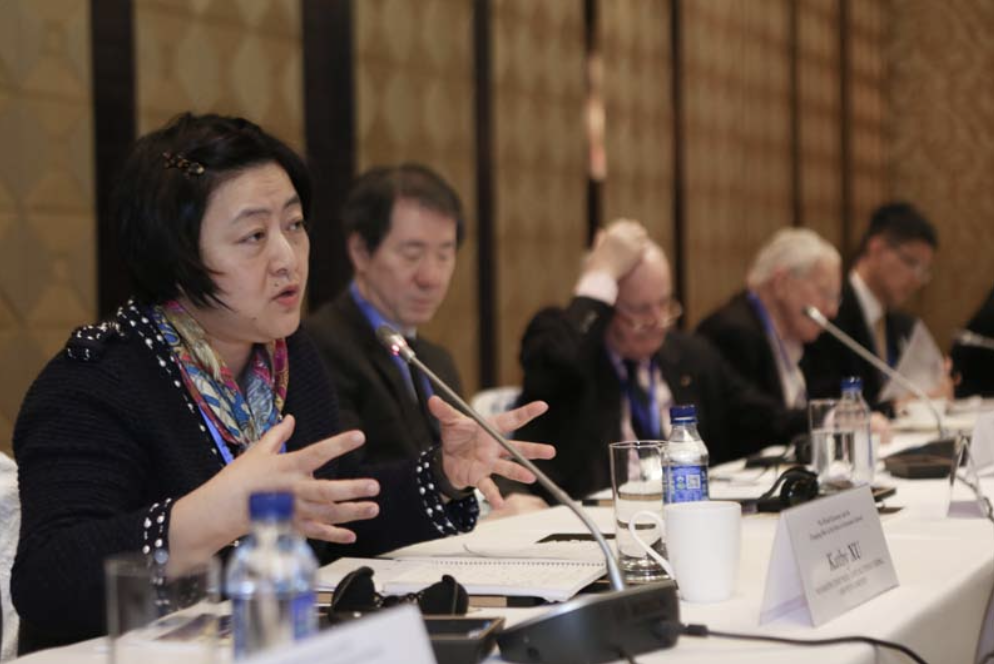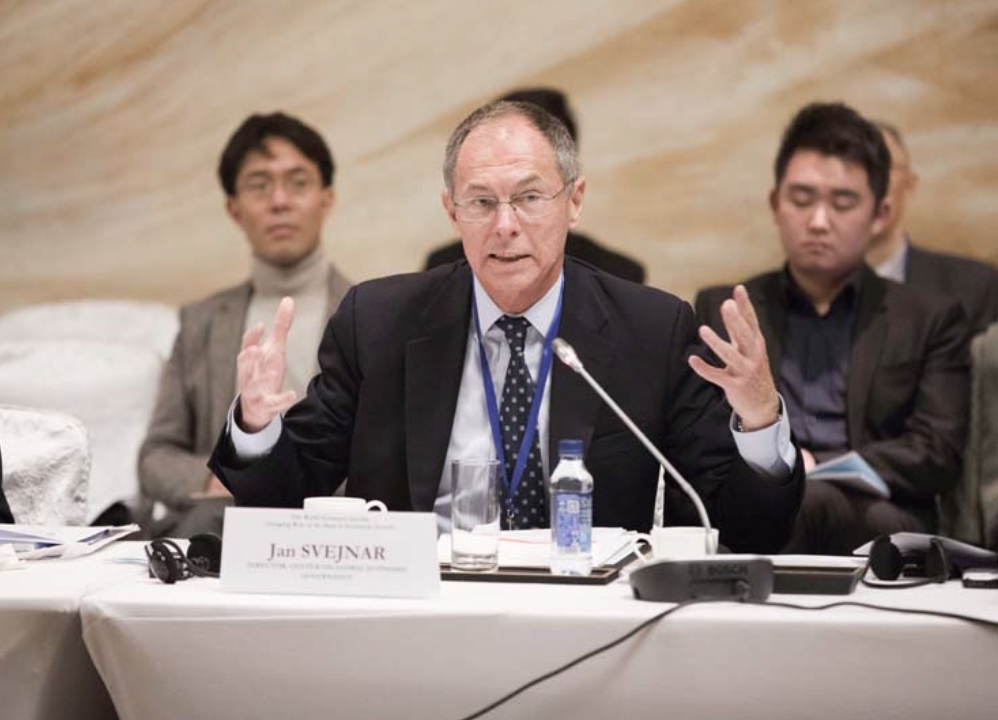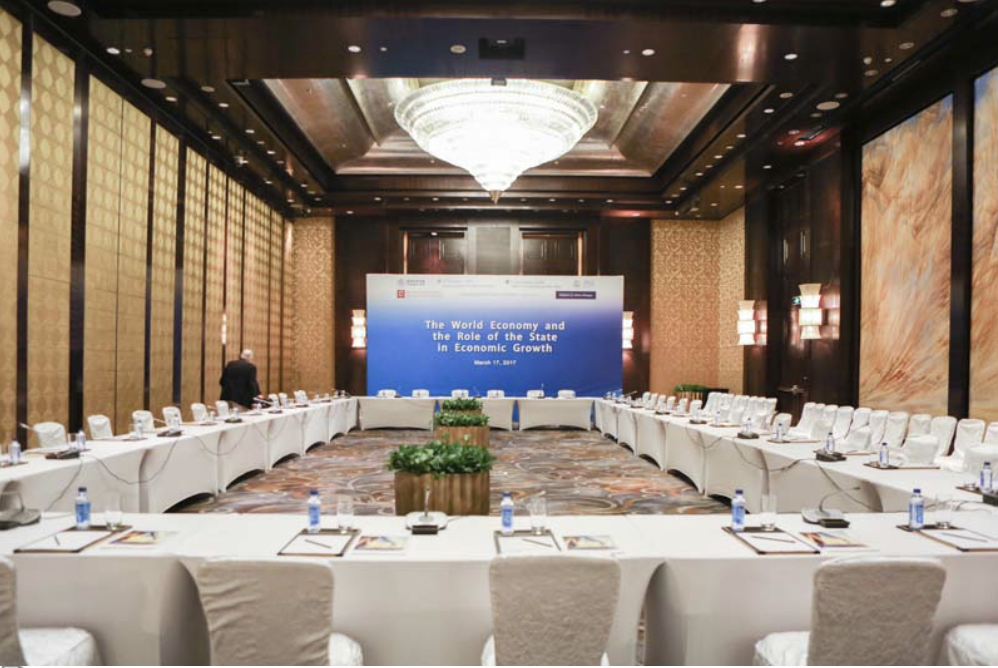The World Economy and the Role of the State in Economic Growth
This conference convenes Nobel Laureates, key policy makers, and business leader from Asia and around the globe, with the aim to foster transcontinental dialogue on a range of topics, including Technological Advancement and Global Economic Integration; Stabilization, Monetary, Trade & Industrial Policies; Innovation and the Internet; and the Future of Global Economic Relations.
Conference Agenda
8:30am: Welcoming Remarks
• Merit E. JANOW, Dean, School of International and Public Affairs, Columbia University
• QIAN Yingyi, Dean, School of Economics and Management, Tsinghua University
• Jan SVEJNAR, Director, Center on Global Economic Governance and James T. Shotwell Professor of Global Political Economy, Columbia| SIPA
9:00am – 10:30am Session I: Economics and Politics of Technological Advancement and Global Economic Integration
Technological change and globalization have benefited many but also have left a large number of people (middle class in advanced economies) behind. Both phenomena have affected income and wealth distribution, as well as (un)employment patterns and job insecurity. The question is how the world should best respond to these economic effects of globalization and changes in technology that have had substantial social and political impact in a number of countries. This session will explore the following key questions:
(1) What are the main problems in today’s world economy? What are the developments with respect to income and wealth distribution, and the related phenomenon of a rising sense of economic insecurity in many advanced economies? How important are technological change and globalization (integration of product and factor markets) as drivers of these problems and associated political repercussions? The accepted wisdom over many decades was that globalization and technological change destroy old and create new jobs (and better ones). Is it still true today and what is the balance in job creation and job destruction? What differences are there across sectors and regions? What transitional measures (e.g., surge protectors) and long term policies are feasible and desirable. How much free migration is politically acceptable?
How does the new world economic order deal with this new reality, while still keeping open borders and trade relations?
Chair: Jan SVEJNAR, Director, Center on Global Economic Governance and James T. Shotwell Professor of Global Political Economy, Columbia| SIPA
Initial Interventions (2-3 minutes each to start the discussion):
Peter JUNGEN, Chairman, Peter Jungen Holding GmbH
Edmund PHELPS, 2006 Nobel Laureate in Economic Sciences and Director, Center on Capitalism and Society, Columbia University
Kathy XU, CEO, Capital Today China Growth Limited
ZHANG Tao, Deputy Managing Director, International Monetary Fund
11:00am – 12:30pm Session II: Exchange Rate, Financial Sector Regulation and Competition Policy
What is the extent and form of optimal government intervention in the exchange rate market, financial markets and the real economy (competition policy)? These issues have been hotly debated in China, with the theoretical arguments hinging on particular assumptions about different types of market failure. In the absence of solid empirical evidence the debates have not yet led to very meaningful conclusions. In this session, the participants will weigh evidence from around the world and consider its applicability to East Asia in general and China in particular. Issues that will be considered include (a) tradeoffs between the government using the financial sector as a tool of industrial policy, while at the same time trying to manage a transition to a more autonomous financial market and market determined exchange rate, (b) Europe’s experience with the Juncker (public-private) investment plan and other competition policy initiatives to stimulate growth, and (c) the effect of specific initiatives in various emerging market economies. This session will also build on Session I and consider the growing anti-globalization trend in terms of trade openness and tendencies toward regional arrangements and beggar-thy-neighbor tactics.
Chair: QIAN Yingyi, Dean, School of Economics and Management, Tsinghua University
Initial Interventions (2-3 minutes each to start the discussion):
BAI Chong-En, Mansfield Freeman Chair Professor and Executive Associate Dean, School of Economics and Management, Tsinghua University
Martin FELDSTEIN, George F. Baker Professor of Economics, Harvard University
HUANG Haizhou, Managing Director, China International Capital Corporation
David Daokui LI, Mansfield Freeman Chair Professor of Economics, Director of Center for China in the World Economy, and Dean of the Schwarzman Scholars, Tsinghua University
LI Zhen, Chairman, GuoXuan High-Tech
Justin LIN, Professor and Director, National School of Development, Peking University
ZHU Yongqiang, Executive Chairman, First Seafront Management
1:00pm – 2:30pm: Luncheon Keynote: Jan SVEJNAR (Chair) in conversation with Joseph E. STIGLITZ, Jacob J. LEW and GAO Xiqing
2:30pm – 4:00pm Innovation and the Internet: Lessons from China, US and Beyond
This session will bring together entrepreneurs, policy makers, academics, and business leaders to consider where and how the internet is stimulating innovation and spillovers within the economy, as well as key policy issues that are impacting the scope for innovation and spillovers in different countries and across economies. Topics include recent developments in both the consumer and industrial internet in China, the US and elsewhere; key policy challenges (be it privacy, security, regulatory oversight, financing); potential contribution to cities and economic growth; how is the digital economy unfolding in the US, China and elsewhere; sources of opportunity and tension across jurisdictions.
Chair: Merit E. JANOW, Dean of the School of International and Public Affairs, Columbia University
Panelists:
Vincent Tianquan MO, Founder, Chairman and CEO, Fang Holdings Ltd.
Eric CHANG, Senior Director of Technology & Strategy, Microsoft China
GAO Hongbing, Vice President, Alibaba Group and Director, AliResearch
Ronaldo LEMOS, Director, Institute for Technology & Society of Rio de Janeiro (ITS Rio) and Professor of Law and Innovation, Rio de Janeiro State University (UERJ)
LING Hai, Co-President, Asia Pacific, Mastercard
Jeongmin SEONG, Senior Fellow, McKinsey Global Institute
4:30pm – 6:00pm Session IV: The Future of Global Economic Relations
This final session will take stock of the issues discussed in sessions I-III against the backdrop of the new U.S. Administration and the 2017 National People’s Congress, as well as the looming presidential and parliamentary elections in France and Germany and Britain’s exit from the Eurozone. The session will bring together leading experts in Chinese, U.S. and European economic relations to discuss how new policies on trade, exchange rate, technology, and innovation will affect the global economy.
Chair: YANG Lan, Chairperson, Sun Media Enterprises
Panelists:
Jacob J. LEW, Former United States Secretary of the Treasury and Visiting Professor of International and Public Affairs, Columbia|SIPA
QIAN Yingyi, Dean, School of Economics and Management, Tsinghua University
Martin WOLF, CBE, Chief Economics Commentator, Financial Times
Joseph E. STIGLITZ, 2001 Nobel Laureate in Economic Sciences and University Professor, Columbia University
Gérard ROLAND, E. Morris Cox Professor of Economics and Professor of Political Science, University of California at Berkeley
YU Punhoi, Chairman, Nan Hai Corporation
Merit E. JANOW, Dean, School of International and Public Affairs, Columbia University
Lawrence J. LAU, Ralph and Claire Landau Professor of Economics, Lau Chor Tak Institute of Global Economics and Finance, The Chinese University of Hong Kong
SUN Zhe, Adjunct Senior Research Scholar in the Faculty of International and Public Affairs and Co-Director of the China Initiative, Columbia| SIPA
6:00pm: Closing Remarks

